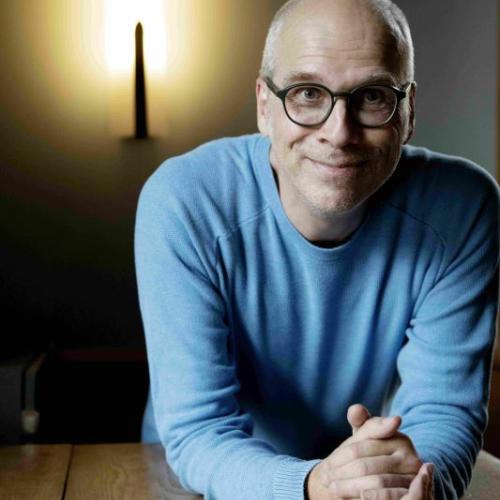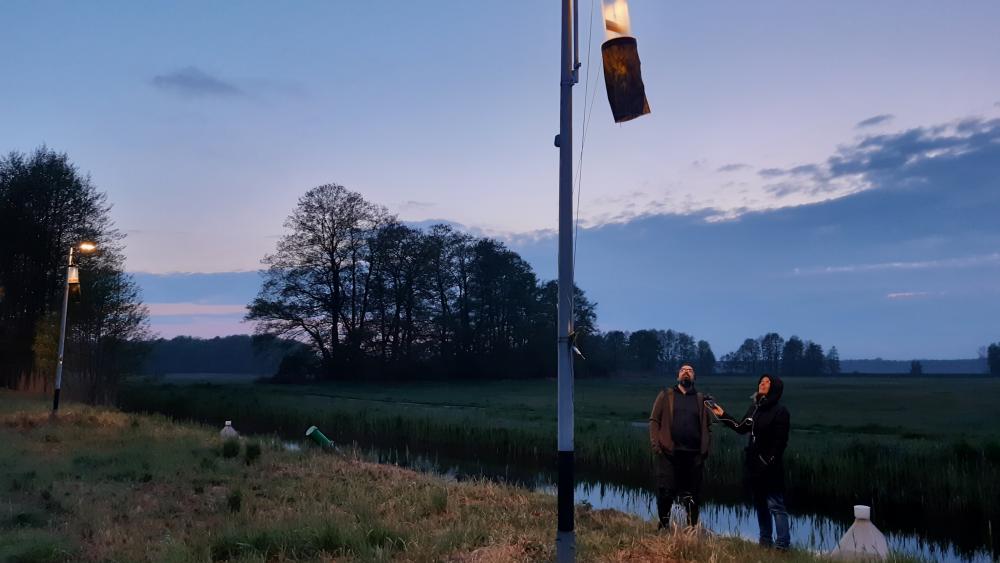
In some German local authorities, strange bag-like structures at the street lights and tent-like structures on the waterways have been installed. These are insect traps that researchers use to track down insects dying at night. | Photo: AuBe/Sophia Dehn
But, first the lighting situation in the participating municipalities will be changed and in some places even worsened for the time of the experiments over a period of four years. The half-night service of the streetlights, which generally is recommendable to save energy and protect the environment from unnecessary light emission, will be eliminated in the summer months. This has to be done in order to study and compare the occurrence and behaviour of all insect groups – including those that do not become active until well after midnight.
The technical requirements for the insect-friendly street lighting design are being investigated by the Department of Lighting Engineering of the Technische Universität Berlin. The Leibniz Institute of Freshwater Ecology and Inland Fisheries (IGB) is researching the ecological effects of the optimised design. The most important role, however, is up to volunteers, who need to participate in the project as citizens' scientists to collect data. Without this support, it would not be possible to taxonomically determine the mass of the insects or to continuously measure the effects on the night sky brightening.
Manifold activities to participate
Actions to participate and environmental education campaigns are offered by the Nature Park Center Nossentiner/Schwinzer Heide, the Centre for Environment Fulda, the Stechlinsee-Center in Neuglobsow and the NABU Westhavelland. All dates can be found on the website of the AuBe project. The events and activities offered for citizen scientists include:
- Setting up and emptying the traps during the monthly insect monitoring in the study areas
- Workshops on identifying the captured insects and learning how the insects are grouped in species and what ecological functions they provide
- Measurements of the night sky brightness in the project areas using the "Loss of the Night" app, supplemented by measurement events on the effects of the new street lighting design
In addition, the AuBe project is looking for experts who can determine individual insect orders, e.g. moths or mayflies, down to species level. Residents are asked to install photometers on their properties to measure the night sky brightness permanently and to contribute these data to the network. The residents of the street sections where the insect monitoring takes place can support the project by providing a small area for light traps on their properties once per month.
In addition, the opinions of residents and visitors about the new street lighting design are collected in interviews. The researchers hypothesize that less light is good for everyone's well-being – both, for insects and for people.
A kick-off event will be held for interested parties on 30 October 2020 at the Stechlinsee-Center in Neuglobsow. Due to hygiene measures, the number of participants is limited. Registration with name and place of residence is possible until 25 October at the following email address: aube@igb-berlin.de. Anyone interested in actions of the project can also contact this address.
The AuBe project is funded by the Federal Agency for Nature Conservation with funds from the Federal Ministry for the Environment as part of the Federal Biological Diversity Programme.
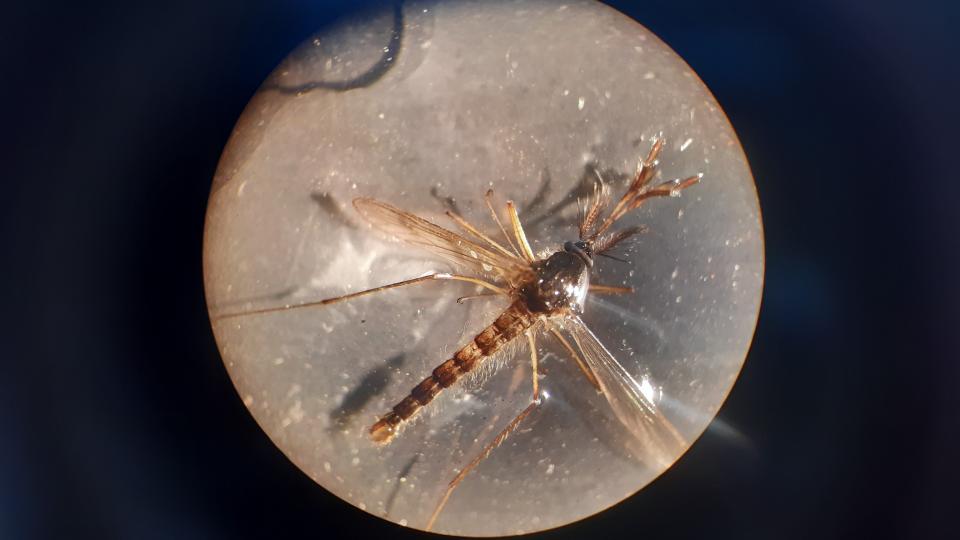
An aquatic insect collected from an emergence trap. | Photo: AuBe/Sophia Dehn
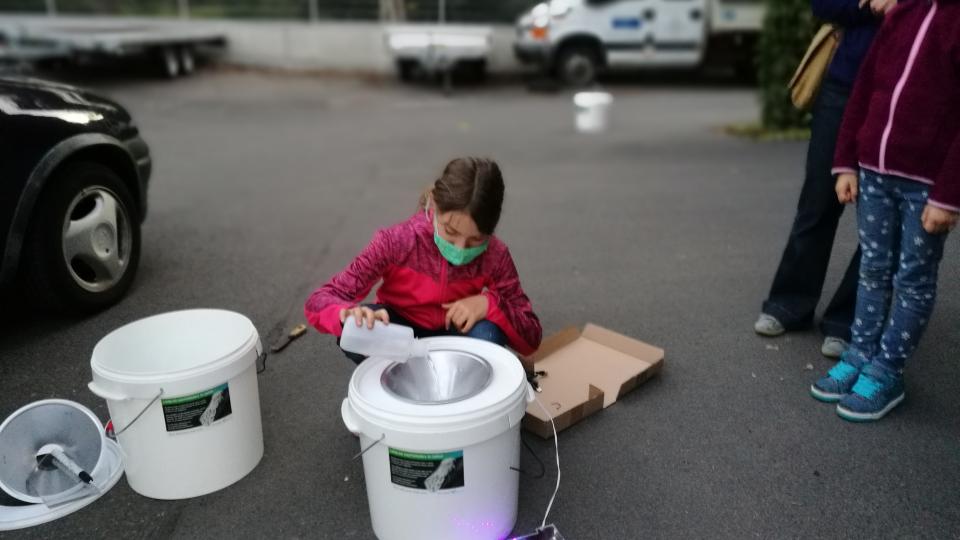
Even the smallest ones join in: a girl from Fulda fills a light trap. | Photo: AuBe/Charis Dittmar
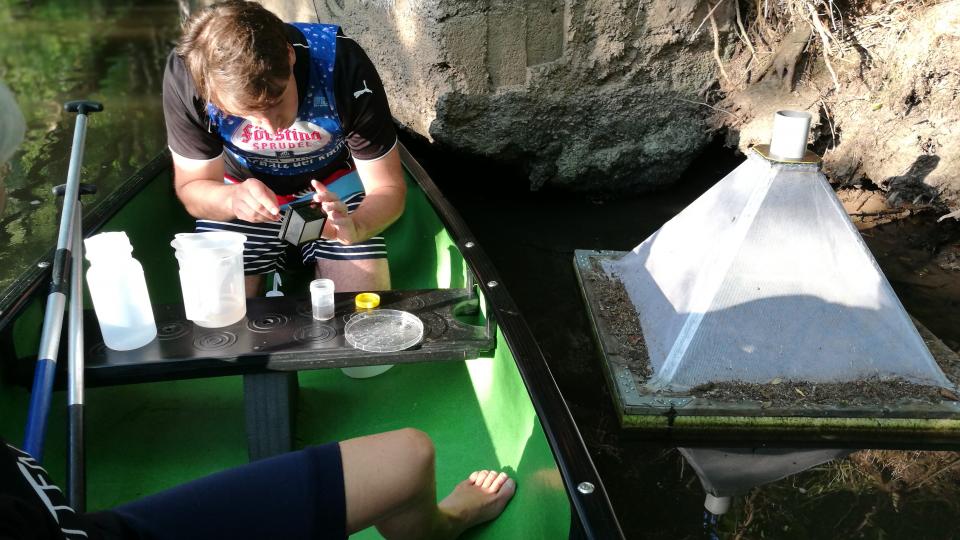
By canoe to sampling: emptying an emergence trap near Fulda. | Photo: AuBe/Charis Dittmar
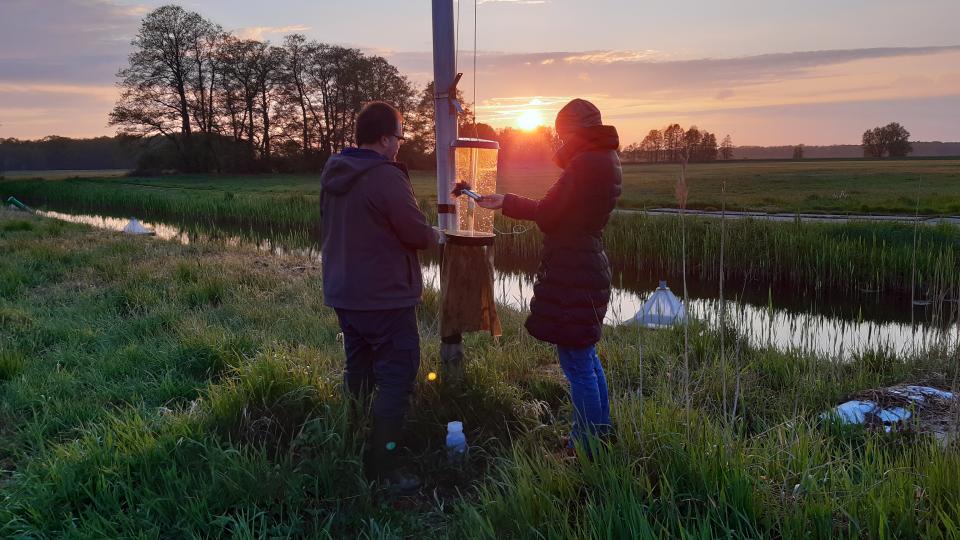
Investigations in our test field in Westhavelland. | Photo: AuBe/Sophia Dehn
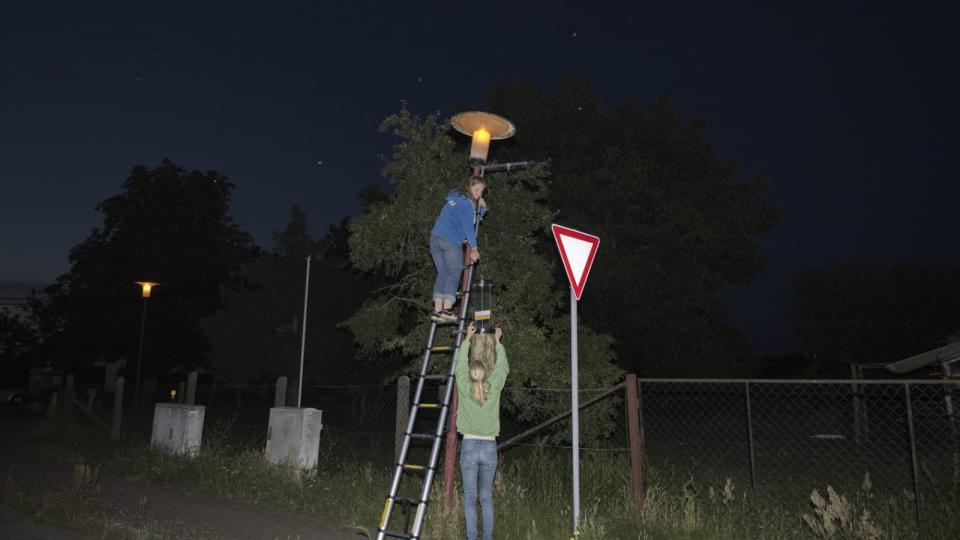
High above: the insect traps are attached directly to the street lamps. | Photo: AuBe/Sophia Dehn



